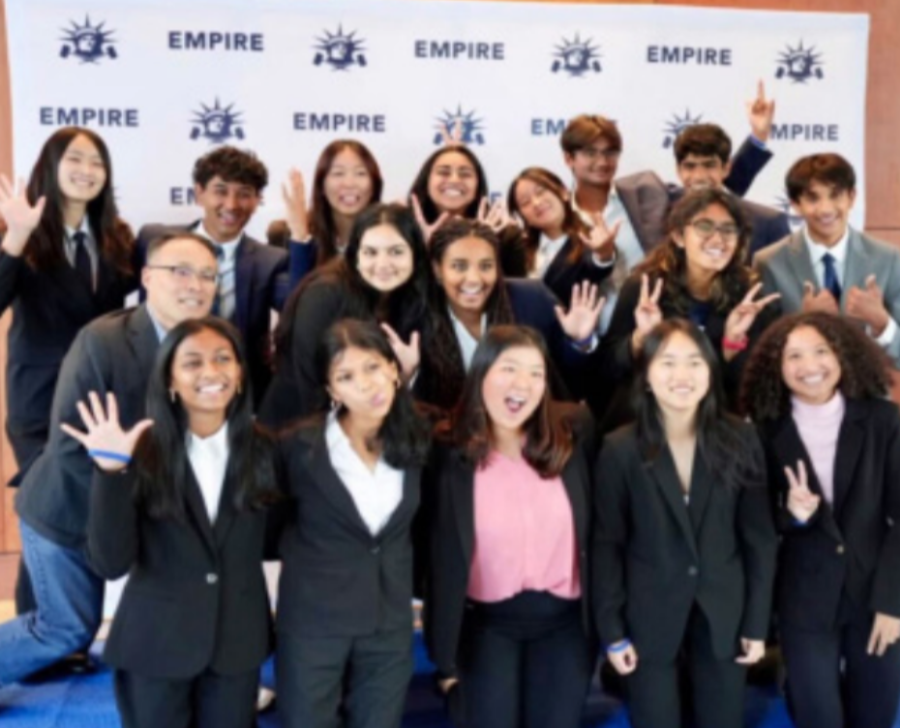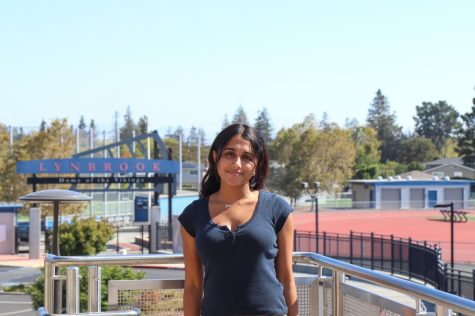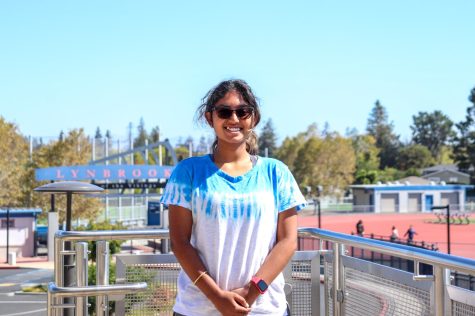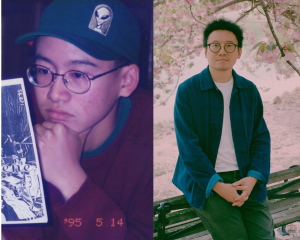Mock Trial team places 7th in Empire Mock Trial Tournament
October 10, 2022
Lynbrook’s Mock Trial team placed 7th at the Empire Classic Tournament in Baltimore, Maryland, their first in-person competition in four years. Empire, a prestigious mock trial tournament, was Mock Trial’s first-ever tournament out of state in which they competed against 27 teams from the U.S. and Canada.
At Empire, Lynbrook presented a case based on the 2018 Hawaii False Missile Alert, in which a ballistic missile alert was accidentally issued via the Emergency Alert system. The first round took place on Sept. 24, when the defense competed first against Northview High School, a highly renowned team from Georgia. Lynbrook won by a small margin of 3 points.
“Since it was their first time in a courtroom, it must have been incredibly stressful for new members,” Aahaan Bandopadhyay, Mock Trial Treasurer said. “I am really proud of their performance.”
Empire was held in-person for the first time in two years. Compared to being over Zoom, the competition is much more interactive in-person, as participants have time socialize with each other. For some newer members, it was difficult to adapt to the in-person setting due to little experience. Body language, including hand gestures and posture, during remote tournaments is not a main focus since competitors are behind a screen. However, once returning to the traditional in-person setting, asserting a commanding presence by pacing throughout the courtroom is vital for an impressive performance. Adapting was a struggle for Mock Trial, but once they adjusted, trials ran smoothly.
On the second day of the tournament, Lynbrook participated in two rounds of competition. In a mock trial competition, there are four rounds that are each scored by two judges. Throughout the tournament, a team will argue the both the prosecution and defense twice. Lynbrook’s prosecution competed with Springfield High School from Oregon and triumphed by five points. During this round, Lynbrook showcased their specialty in precise objections.
“Empire is a lot more complicated than our regular competitions,” Bandopadhyay said. “There’s more nuance and the rules of evidence are much broader, making it much harder to predict the opposing side’s arguments.”
The second defense trial against Jesuit High School from Oakland was an opportunity for Lynbrook’s defense to improve upon what they had struggled with during the first round. Their efforts paid off in a 20-point win.
On the final day of the tournament, Lynbrook’s prosecution competed against Trinity Pacific Christian School, a team from California who have been undefeated for the past four years. Lynbrook Mock was defeated by 27 points.
“Although Trinity Pacific ended up winning, I am so proud of our team for putting up a strong fight against such an advanced team,” senior and Mock Trial Co-President Esha Dasari said. “We learned a lot from a talented team and we can now use that knowledge in our future rounds.”
The team spent months preparing intensely for Empire, first by reading through the case and brainstorming themes, or one-liners that encompass the whole counsel’s arguments and theories, or a timeline of events on how a crime took place.
After writing the case, the team tests its success through scrimmages, or practice opportunities, while the opposing team offers feedback on the arguments.
“Scrimmages are the most fun times of our season,” Bandopadhyay said. “We are able to compete against like-minded people who also want to improve.”
Based on their performance, the team continues to revise their argument for five months until they are ready to compete.
“Mr. Shem puts so much time into making sure our performances are the best they can be,” Bandyopadhyay said. “He worked countless hours to pull the latent potential out of all of us.”
In the next two months, the team will prepare for a tournament hosted by the Constitutional Rights Foundation over Zoom. CRF presents more shallow cases in comparison to Empire, which mimics real world cases and is closely related to college-level mock trial. Furthermore, Empire uses the Federal Rules of Evidence while CRF uses a modified set of California’s Rules of Evidence, making it much simpler.
“Empire truly prepared us for what’s to come,” Dasari said. “All of our hard work going into the same thing really brought us together.”





























































